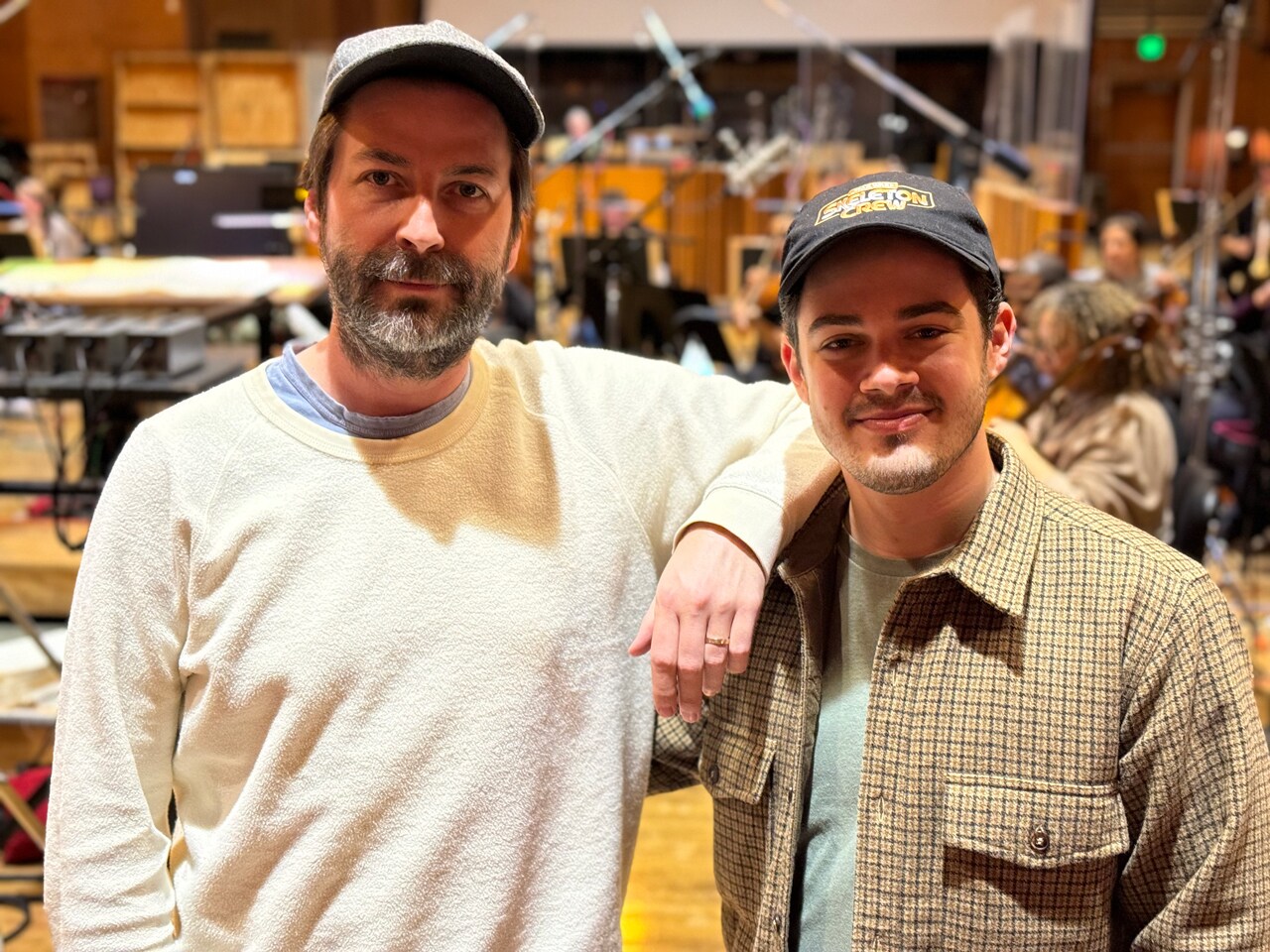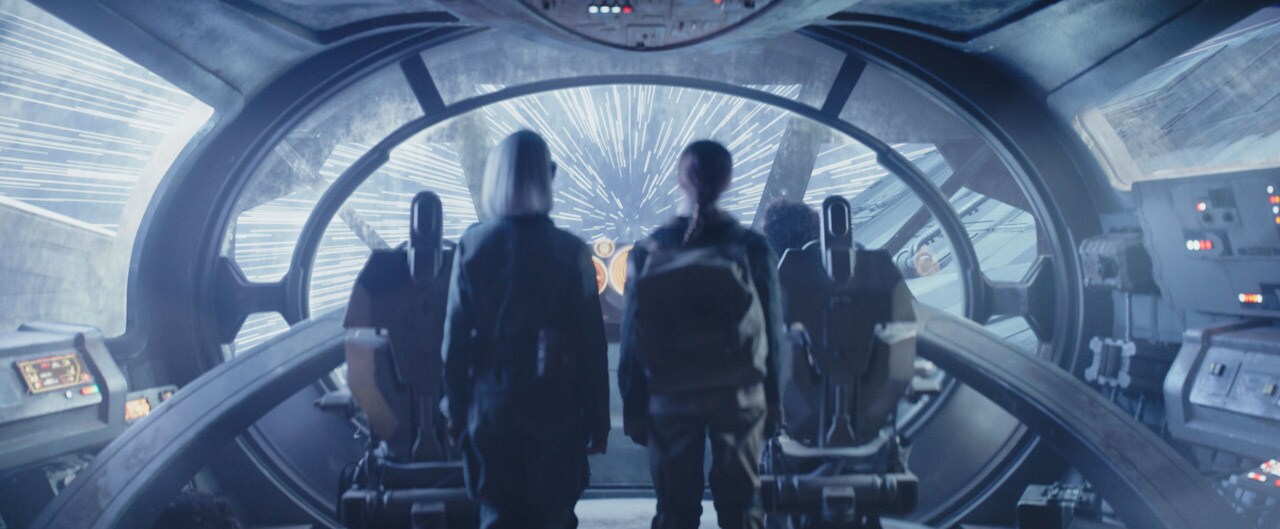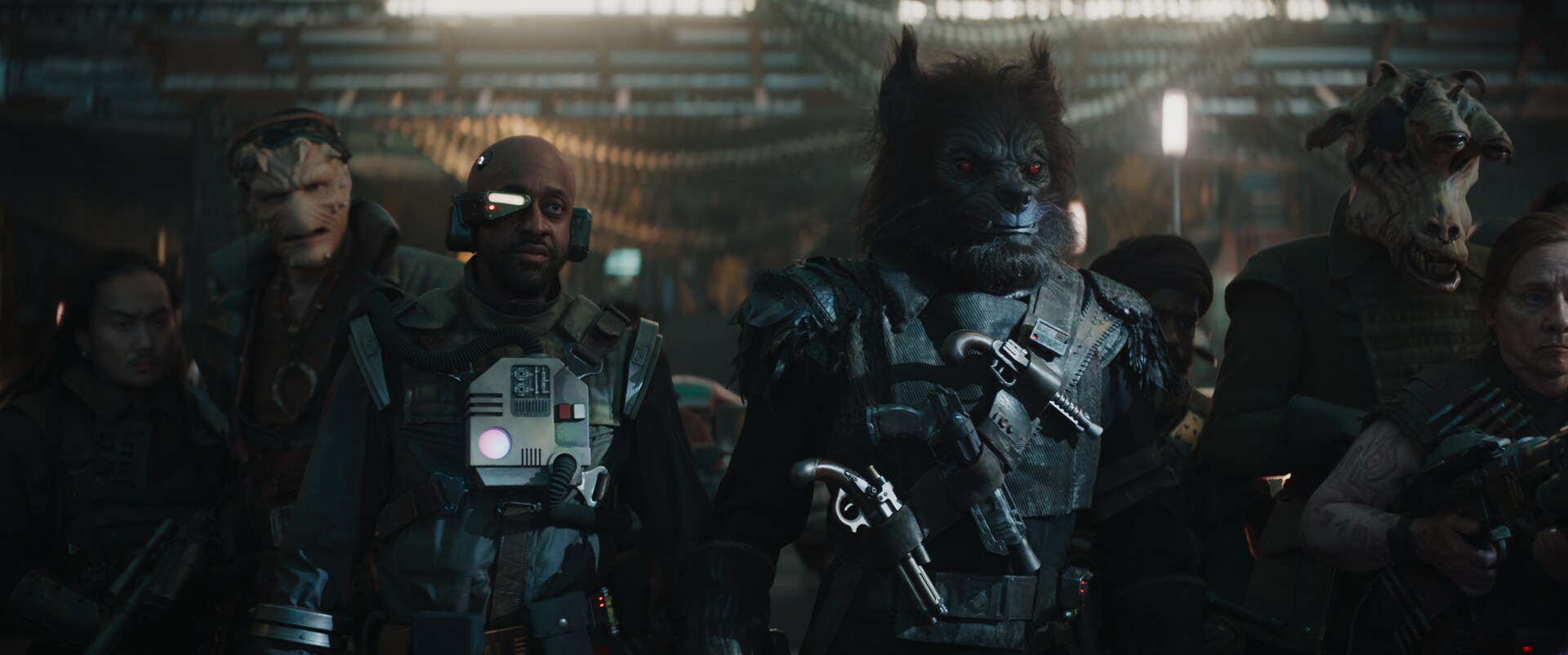The son of Rogue One: A Star Wars Story composer Michael Giacchino brings his own vision to the score of the next Disney+ Star Wars series.
When composer Mick Giacchino first got the call to write the score for Star Wars: Skeleton Crew, it was a pinch-me moment to work on a franchise he’s loved since childhood. “I wanted to ensure that this was a show where you get to really put yourself in these characters' shoes because most of us grew up with Star Wars and our dreams were to be those kids and blast off on some adventure,” he tells StarWars.com. “I'm still pinching myself about it. It's so exciting!”

One of the only people he told, prior to this announcement, was his father. Acclaimed composer Michael Giacchino had worked with series creators Jon Watts and Chris Ford on the Spider-Man franchise as well as scoring Rogue One: A Star Wars Story, so he had some sound advice from his own experience. “From the beginning, he said, essentially, ‘Just remember to have fun with it,’ especially given the nature of the show. He was very supportive,” Mick recalls.
Giacchino has been accompanying his father to the scoring stage for as long as he can remember, and even before. “I was told that during one of the Medal of Honor sessions, I apparently ruined one of the takes because I was screaming. I was a toddler,” he says. “Music has obviously always been a huge part of my life from when I was little.”

As he got older and started school, Mick and his siblings would regularly watch their father at work, a different but no less important classroom for the aspiring composer. “There's a special feeling when you get to sit out on a scoring stage and listen to the orchestra play,” Mick says. “It's almost as if they're playing just for you and you can feel the vibrations of every instrument. I learned a lot about it that way, just observing and getting to know the musicians in the tight-knit orchestra.”
In his teen years, Mick committed more fully to the idea of scoring music as a career for himself. “I'd always played music,” he says. “I was playing in bands and I was into rock ‘n’ roll, but it was in high school that I realized, ‘Oh, I can see myself scoring for a living.’” Since 2015, Mick Giacchino has scored more than a dozen shorts, movies, and TV series, including The Penguin (2024) and The Muppets Mayhem (2023). But Star Wars specifically holds a special place in his heart as a music and film fan.
“My dad is very particular about the way he showed us films,” Giacchino recalls. The first time the siblings watched Star Wars was on an old projector to beam the film onto one wall of the family’s living room. “The second that title card hits, even being that young, I was like, ‘Oh, this is different,’” he says. “It sticks with you.” The family’s close proximity to Los Angeles meant regular tickets to see John Williams at the Hollywood Bowl, where Giacchino grew an appreciation for Williams’ brilliance as well as the music that inspired the maestro.


Composing the score for Skeleton Crew gives Giacchino a chance to immerse new and experienced Star Wars fans in a similar fashion. “One of the most appealing parts of Star Wars for so many people can really be summed up by Luke staring out at the twin suns on Tatooine and dreaming of a life outside of his own filled with adventures,” he says. “For me, Star Wars was always an escape into this fantastical world where I could imagine myself flying an X-wing or riding a tauntaun around. And, especially as a kid, it takes you to all these places that we can't go as human beings, but we can be taken there through movies.”
Still that same kid at heart, Giacchino found himself awed by the adventure in Skeleton Crew as he was working on the compositions, beginning with the series’ main theme. “Initially, my main focus was the kids who are in over their heads and are out in this dangerous galaxy trying to find their way home,” he says, citing a motif reflected in other pieces of storytelling that inspired the creators, including the Amblin films in the 1980s. “That's ultimately the core of this. I would find myself sitting in my studio working, and I would just be giggling, watching the scenes thinking, ‘Wow! This is what I loved as a child.’”

The series’ theme reflects the nuanced storytelling, Giacchino reveals, a chord progression he first discovered while seated at his piano at home. “I found this chord sequence that was very simple and easy to use as a musical motif as well. When Jon Watts first heard it, he quickly associated the opening four chords with the four kids. I wanted you to feel as if you were stepping into a storybook at the very beginning, so I arranged it for some harps and synths to create this kind of whimsical floating feeling, almost like a daydream.” But the story and the music will be grounded in the dangerous realities the four young characters — Fern, Wim, KB, and Neel — encounter along their journey. “I started developing the theme in the Lydian mode over the chord progression, and little by little it started growing into this childlike piece that is very playful and fun, but can also be twisted in darker ways. The childhood wonder only lasts so long for these kids until they're plunged into the galaxy. Ultimately, at the core of it, I wanted to capture that feeling of being a kid, looking out at the twin suns, and knowing that there's an adventure out there waiting for you.”
All episodes of Star Wars: Skeleton Crew are now streaming, only on Disney+.

